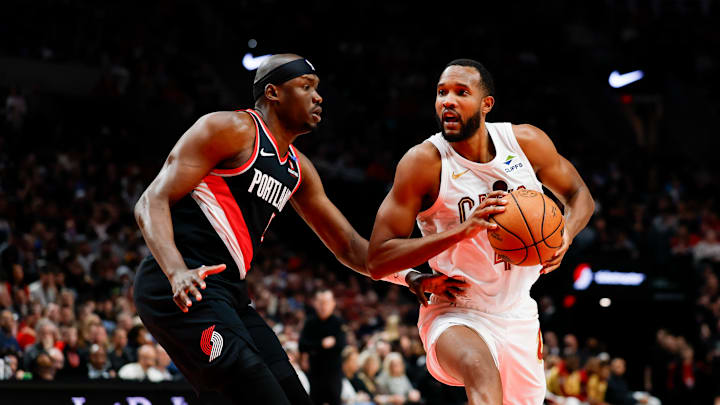The second apron is going to force the Cleveland Cavaliers to make tough decisions, but they cannot sell off players without targeting some value in return.
Cleveland's inflated cap sheet will make this offseason a financial nightmare, especially as the Cavs hope to bring back sixth man Ty Jerome. With three players on a maximum contract and Jarrett Allen's max extension from last summer, the Cavaliers enter the 2025 summer as one of the NBA's most expensive teams with only two second-round exits to show for it.
The latest trade rumors surrounding the Cavs suggest Cleveland is hoping to justify re-signing Jerome and Sam Merrill by shedding salary in earlier moves. Notably, Cleveland.com Cavs insider Chris Fedor suggested Cleveland is trying, unsuccessfully, to move Isaac Okoro and Dean Wade. Both players make low-cost, tradeable salaries, but Cleveland is struggling to find suitors without adding sweeteners to the deal.
By dealing Okoro and Wade in pseudo-salary dumps, the Cavaliers will likely still land in the second apron but have more avenues out going forward. Earlier we explored an Okoro trade focused on finding another talented fit for the Cavs, but the daunting tax penalties weighing on Cleveland may force them to push on from the Okoro experiment for nothing more than salary relief.
The Okoro trade
While it's clear that Okoro's Cavs tenure has been less than what the organization hoped it could be, the young wing is still a worthwhile prospect for a majority of rebuilding teams. Rather than spending money in free agency on short-term veterans, a young team could benefit from Okoro's rugged defense and sparks of offensive potential.
This move sends Okoro west to the Portland Trail Blazers in exchange for Duop Reath, a 6-11 center on a minimum contract. With more than $8 million between each player's salary figure, the Blazers would have to acquire Okoro through their Non-Taxpayer Mid-Level Exception. Thus, the Cavs offer both of their second-round picks this year, compensating Portland for their lost free agency flexibility.
Given Portland's position as a team beginning a rebuild rather than emerging from the end of one, adding Okoro on a long-term, team-friendly contract is a positive step forward for Portland. Two second-round picks are cost-controlled players to complement the young Blazers core. For the Cavaliers, though, those picks serve only as cap holds that will further limit their financial options.
To Cleveland, this trade brings in a player who can fill minutes when Evan Mobley and Jarrett Allen need rest. Reath is by no means a high-end backup big, but he is a cheap player who fills a need for the Cavs.
There is no way to spin this trade for the Cavaliers. It is a salary dump, and they lose the trade. Unfortunately, this type of deal is the cost the Cavs must pay to manage the second apron unless there are significant changes to the core of the franchise. If the Cavaliers are willing to move on from Darius Garland or Allen, a franchise-altering trade could help Cleveland stay competitive this season while dipping below the second apron. Otherwise, this Okoro deal may be the best option on the table from a financial perspective.
Still, the Cleveland Cavaliers are in dire straits after this trade, but as Fedor notes, the Cavaliers may be aiming for this sort of trade. This brings them within the margins to fall below the second apron, and a Wade trade might get them there. If this is the ultimate conclusion to Okoro's Cavs career, it would be safe to say the franchise failed. Trading Okoro is likely the best choice going forward, but a trade that is nothing more than slight salary relief is a poor, frustrating result for a former top-five draft pick.
